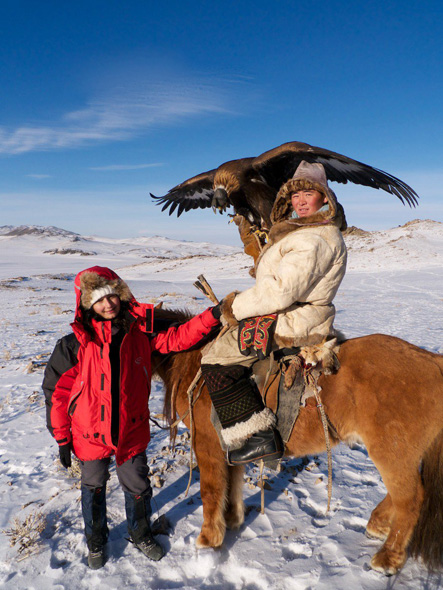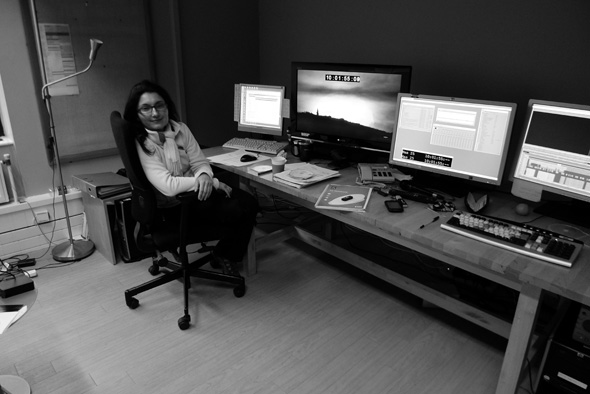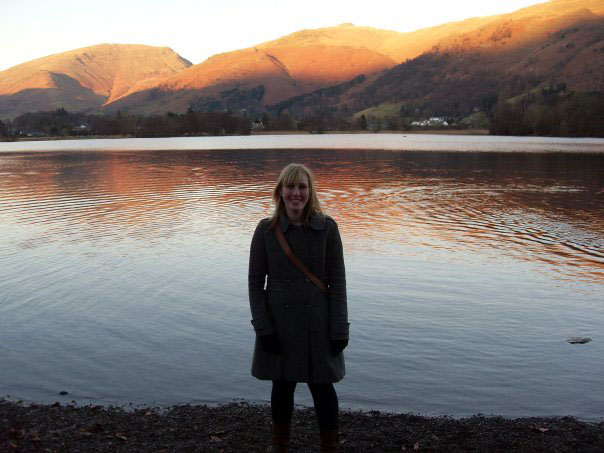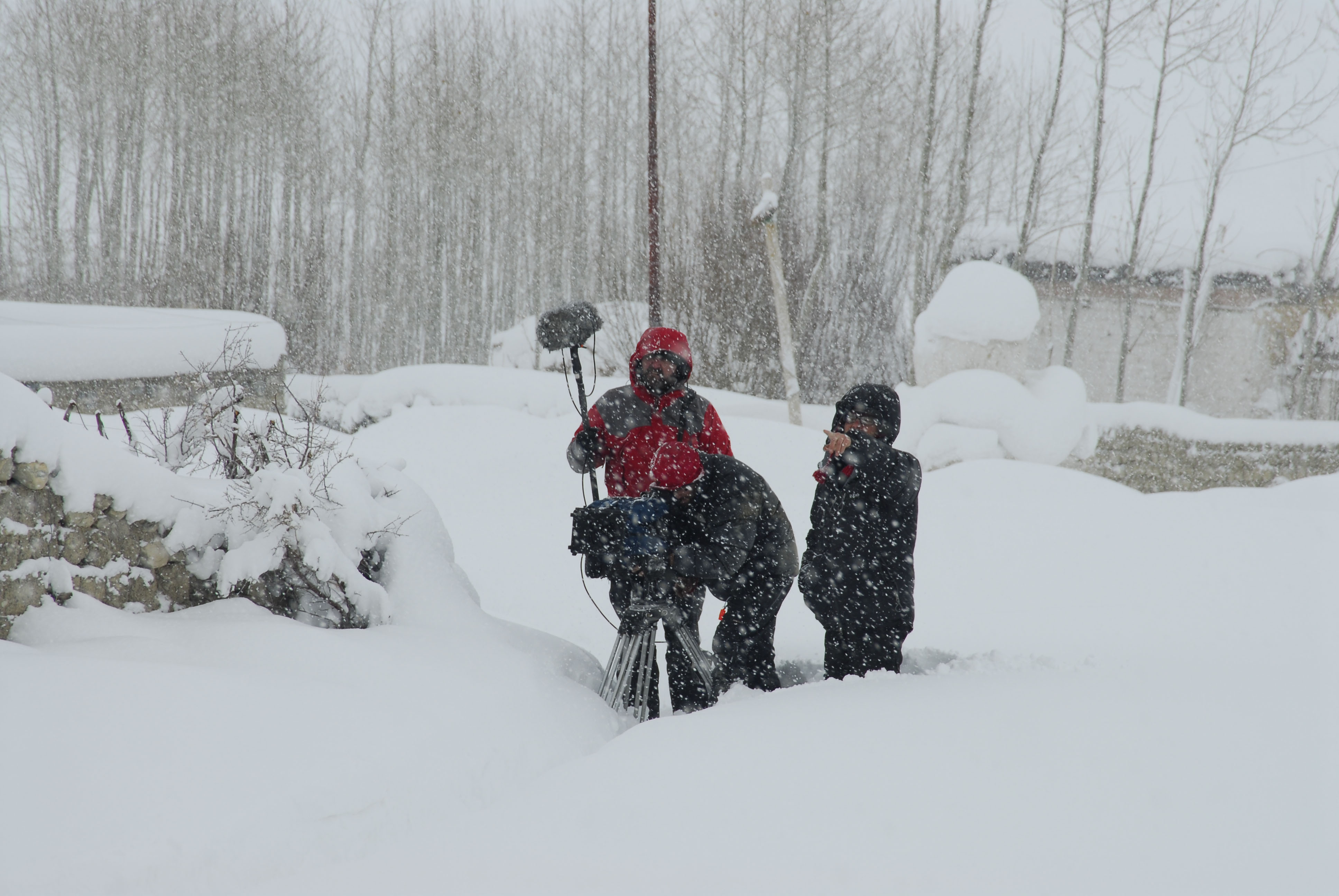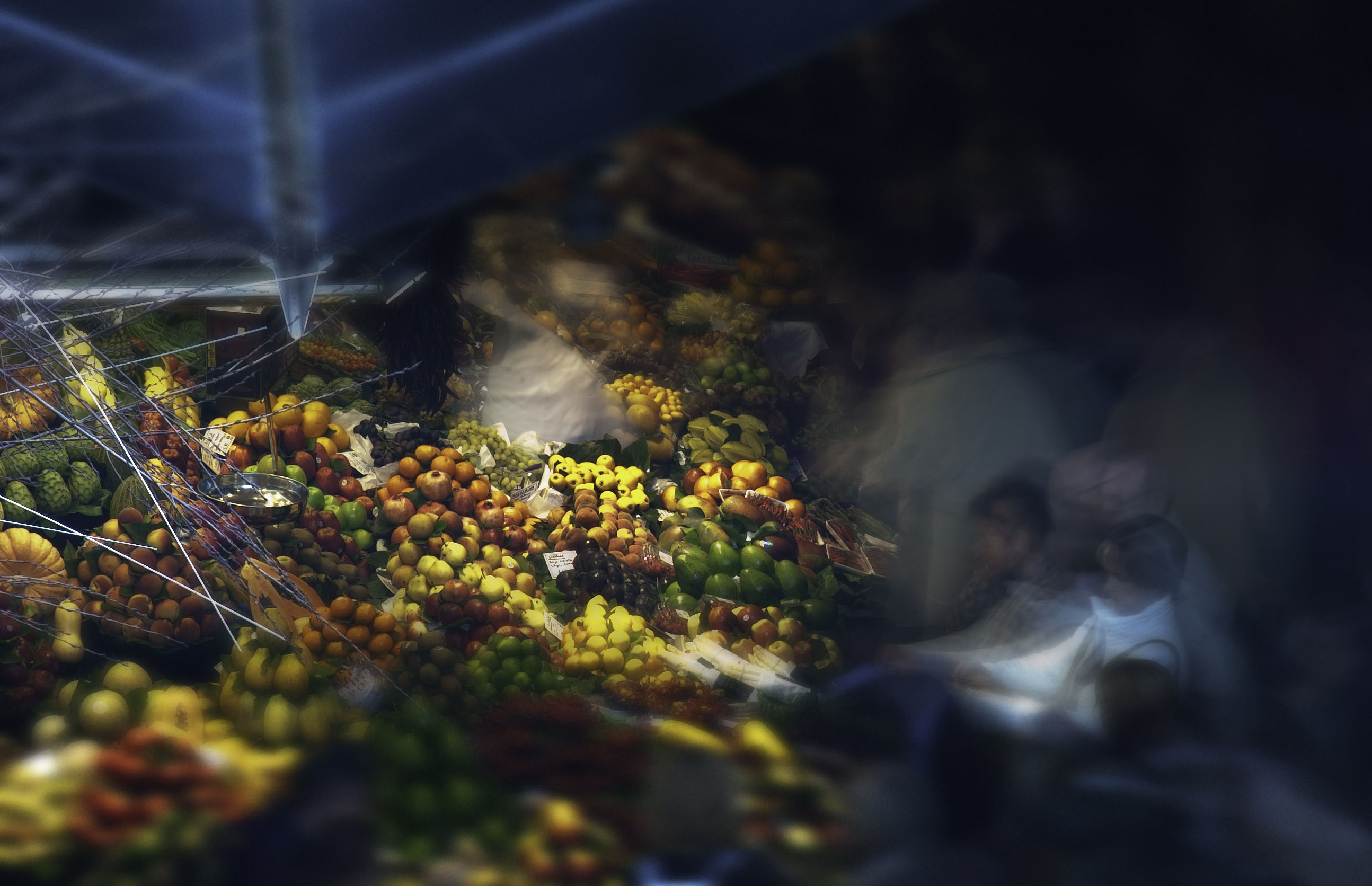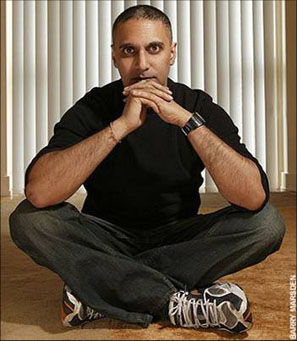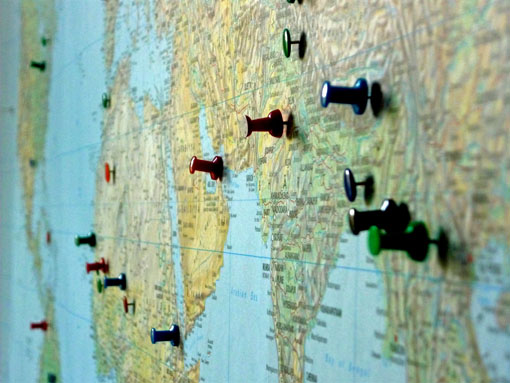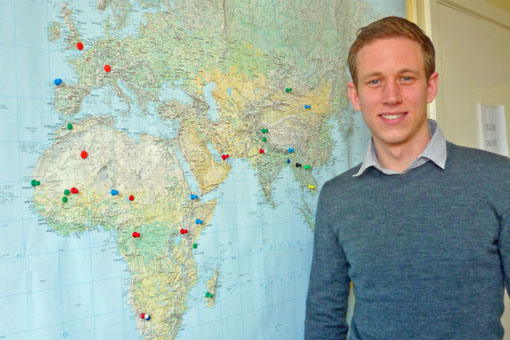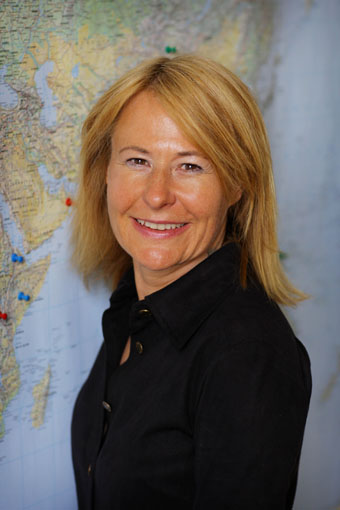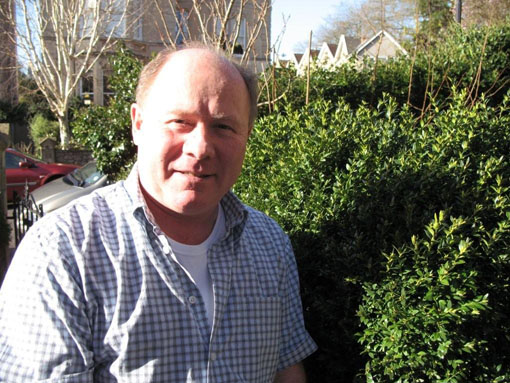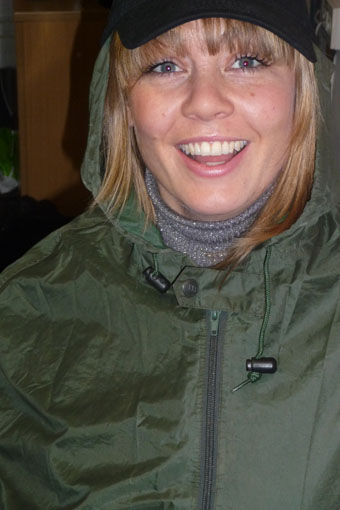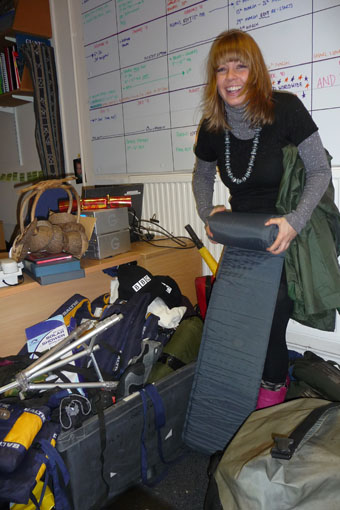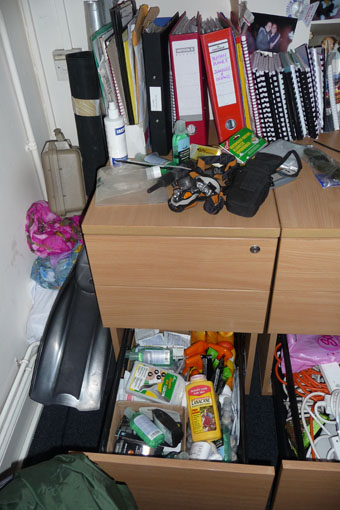When Explorers Collide
by Dina Mufti, Assistant Producer on Mountains/Education Producer of Human Planet
After Human Planet took the UK by storm, the series is now coming to the US this Sunday on Discovery at 8pm. We are so excited about the US launch and we hope you will enjoy watching the series just as much as we enjoyed making it. We’ve so many production tales to tell I wanted to share with you why having the chance to work on the Human Planet project is so rewarding for me personally. I was 11 years old and I was walking through the cobbled streets of Lisbon holding my father’s hand looking for the tomb of Vasco da Gama. In 1497 the great Portuguese explorer had set sail with his crew in search of the end of the world. I can recollect looking up at his tomb as my father explained all this to me and from that moment on I wanted to travel.
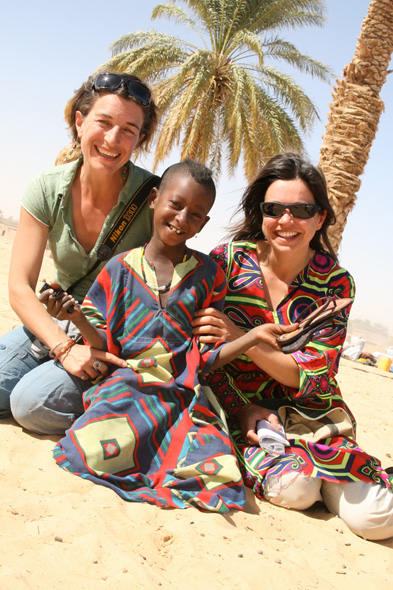
Human Planet production team members Tuppence Stone and Cecilia Hue with 10 year old Shede, a Tubu girl who crosses the Sahara in a camel train searching for water - featured in the geography class films.
When I came home my geography classes at school took on a whole new meaning. The maps and photographs of mysterious people around the world became three dimensional, brought to life by my dream of sailing with Vasco da Gama discovering the world and its diverse characters. My father had used a clever trick - by enlivening my imagination, my geography classes suddenly became exciting and I wanted to learn more. The way people lived their lives around the world and the different environments they lived in became more intriguing and, most essentially, became connected to my own.
Passing on knowledge that opens the minds of young people - from a father to a daughter or as a programme maker to an audience - is one of the richest rewards in life. So when I was asked to re-edit some of the Human Planet stories that you’ll see in the series for geography classes in schools, old da Gama and I brushed the dust off the sails and were on our way again. And we had a gift - this time the pictures were not painted by flat maps and text book descriptions but by the awe-inspiring footage from the Human Planet series.
Through central characters children will be guided through genuine experiences and learn valuable lessons about survival and management within our changing environment. From their classrooms they can begin to voyage - and ask important questions that will affect their future and shape the world they live in. Like me, padding across those cobbled streets so long ago, they can become explorers - and set sail with Vasco da Gama… something tells me he would be pretty happy about that…
Human Planet comes to US on the Discovery Channel at 8pm on April 10th.
Whirlwind Planet
by Nicola Brown, Production Management Assistant
When I joined the Human Planet team back in February I felt excited and slightly nervous. Not only was I going to work on a massive landmark series for BBC One but with a team of 20+ new people, some of whom had been on the project for nearly 3 years! But before I knew it I was right in the thick of it all with no chance to worry about anything other than getting shoots out to some of the remotest places on earth. It’s 10 months later and as we finish up in post-production and head towards transmission there’s only a handful of us left. Where did the last 10 months go?!
Within days of starting in our Cardiff office the Rivers team were facing a potential crisis. A crew had recently departed for the Indian Himalayas to film a sequence on the frozen Zanskar River. On arriving in the village of Zangla the team had met with horrendous weather conditions that left them stranded. Daily conference calls deliberated whether we should abandon the shoot altogether and rescue everyone by helicopter! I’d never been on a production like this before. As the days went by thankfully conditions changed and the shoot was able to go ahead. A short film documenting the team’s journey has been made for release with our DVD on iTunes. It’s a compelling watch and really shows a Human Planet shoot at its most extreme.
A couple of months later Iceland’s Eyjafjallajokull volcano caused further chaos in the office as flights out of the UK became disrupted just as a crew were due to depart for Barcelona to film a sequence for our Cities programme. With no official word on when air-space would re-open, the decision was made to take the shoot on the road. Myself and Production Co-ordinator, Andrea Jones went into a frenzy, making last minute bookings and frantically re-scheduling while Technical Co-ordinator Patrick Murray got kit together. Somehow we managed to get the team out in time. Over in Brazil our Producer/Director Mark Flowers was trying to fly back from a Rivers shoot in the Amazon. Mark managed to board a flight from Sao Paulo; in the office however, we were unable to work out where he would land! With no updates availliable from Heathrow or the airline, it was only towards the end of the flight we learnt that he would land in Barcelona. Strangely meaning he was able to meet up with the other crew and go out for an evening!
We finally finished filming in August, launching straight into a hectic post-production schedule of edits, orchestral records and voice over recordings. Seeing the programmes come together gradually has been an exciting process and it’s amazing to see how the shoots we sent out the door have transformed into wonderful stories for television. With transmission only a couple of weeks away, we’re now starting to see the programmes completely finished in full stunning HD and in 5:1 surround sound. Seeing calendars, books and DVD covers makes everything seem all of a sudden very real. The world is about to see the amazing places and meet the fascinating people that the teams have spent the last 3 years putting together. Look out January 2011!
The Musical Language of Human Planet
by Nitin Sawhney, Composer for Human Planet
Well… Life working on “The Human Planet” has been quite revelatory.
Since working on Human Planet I have been repeatedly astounded by images of
human resilience from around the globe… stunning visuals of men taking casual strolls on seabeds (without breathing apparatus!),
stick fighters, Arctic hunters and rainforest bridge builders have
filled my computer screen daily with inspiration.
As it is my job to score this wonderful 8-part series, I find myself
constantly suspended between disbelief at the possibilities of
environmental adaptation and exhilaration at the prospect of scoring
arguably the most profound documentary narrative ever broadcast.
Creating the musical vocabulary for such disparate programmes is no
easy feat, however. Besides attempting to musically express the arc
and nuances of each individual episode, it has been my task to also
find a cohesive musical language for the entire series as a whole.
Over the next few months I will be scoring and orchestrating epic
scenes for the National Orchestra of Wales, various specialist
musicians and singers and most importantly attempting to find the soul
of this beautiful tale of human determination.
Dale Templar, series producer, is acting as my guide and mentor over
this period, helping me to navigate my way around the individual needs of directors, the meticulous executive review process and that search
for motifs, ideas and a musical vocabulary worthy of such classic
scenes.
I will be updating you as I go, not only on all of this but also the
ongoing discussions over Human Planet – Live!
Cheers
Nitin
Life is all about packing cases
by Jasper Montana, Technical Coordinator
Metal pins are slowly spreading across the map of the world in our office – each one representing a trip, a recce, a shoot, and another sequence of Human Planet recorded onto what have now become many kilometres of magnetic video tape. For each of us on the Human Planet team, each pin represents a different moment of time.
For those who went on location, it may be a life changing adventure, a harrowing experience, or a drop in the ocean. For those left in Bristol or Cardiff, it might be a sigh of relief as the crew depart, a moment of pause in a quiet office, or a stressful planning process which lingers long after the crew depart, when phone calls from the Jungle require a mortally wounded shoot to be remotely stitched back together.
On many occasions the pin represents for me long days of getting a plethora of filming equipment squeezed into the smallest possible cases for transport to location. So I was going to write a post about how the human desire to make order out of chaos can be summed up in the line ‘life is all about packing cases’ but I thought I’d just make a time-lapse video instead.
Enjoy.
Packing cases for a shoot to Algeria - timelapse video coming soon
Only a handful of pins are left in the jar – who knows what each has in store.
State of Play : a Dialogue
by Brian Leith, Executive Producer
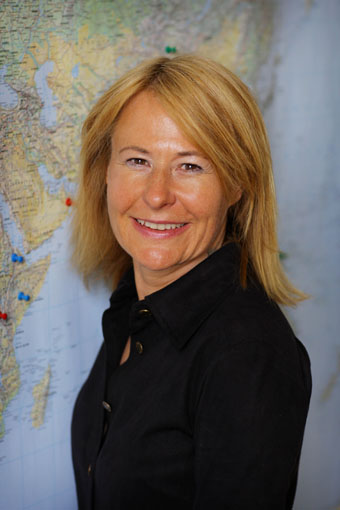 and Dale Templar, Series Producer
and Dale Templar, Series Producer
************************************************************
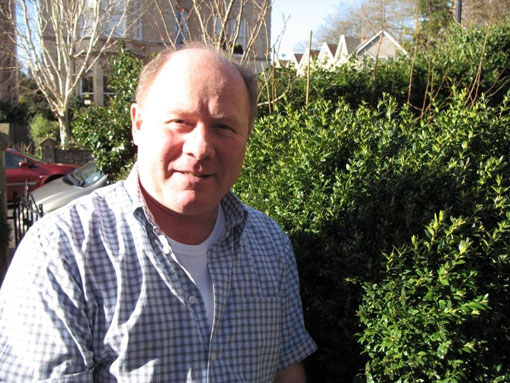 Well, 8 months to go now until we deliver the series. For many programmes, and most producers, this might seem like an eternity… But for us it seems like the day after tomorrow…
Well, 8 months to go now until we deliver the series. For many programmes, and most producers, this might seem like an eternity… But for us it seems like the day after tomorrow…
 Correction….It actually feels like tomorrow!
Correction….It actually feels like tomorrow!
When you start working on what we in TV land call a “landmark series”, a three year production cycle does feel like an eternity. For the first year it feels as if you are pushing a snowball up to the top of a hill. Year two and it starts rolling down, gradually building momentum and growing in size and now in year three the snowball is huge and rolling at speed with us all trying to keep it in control as it hurtles towards the finishing post! (I’ve used this metaphor because there are huge flakes of snow falling here in Cardiff and we’ve been working on the first edits of the Arctic episode). Over to you, Brian..
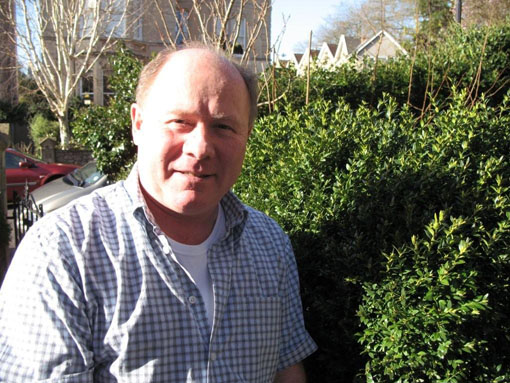 It feels like the Arctic here in Bristol too… it’s started snowing here as well, and the forecast is for heavy (ie traffic-stopping) snow today and tomorrow all over SW England and South Wales (several of us on the HP team were brought up in North America and we find it mildly pathetic, if amusing, how little snow seems to bring this mighty empire to its knees… in Montreal when I was a boy we’d get 6 inches of snow overnight and the snowploughs would be out clearing the roads before the sun rose. True!)
It feels like the Arctic here in Bristol too… it’s started snowing here as well, and the forecast is for heavy (ie traffic-stopping) snow today and tomorrow all over SW England and South Wales (several of us on the HP team were brought up in North America and we find it mildly pathetic, if amusing, how little snow seems to bring this mighty empire to its knees… in Montreal when I was a boy we’d get 6 inches of snow overnight and the snowploughs would be out clearing the roads before the sun rose. True!)
Gosh - apologies for that diversion!
Back to post-production, please, Dale: when do our edits start?
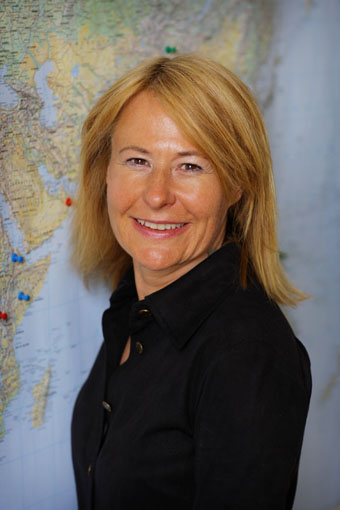 We go into edit in just a few weeks. Each hour of television takes ten or eleven weeks to cut. That includes the 10 minute “Making of”, where you get to see some of what goes on behind the cameras. After that we have several weeks of final post production or finishing which includes dubbing, mixing and voice-over plus the grade where the HD pictures really come to life. Many people get involved during this process, don’t they, Brian …..?.
We go into edit in just a few weeks. Each hour of television takes ten or eleven weeks to cut. That includes the 10 minute “Making of”, where you get to see some of what goes on behind the cameras. After that we have several weeks of final post production or finishing which includes dubbing, mixing and voice-over plus the grade where the HD pictures really come to life. Many people get involved during this process, don’t they, Brian …..?.
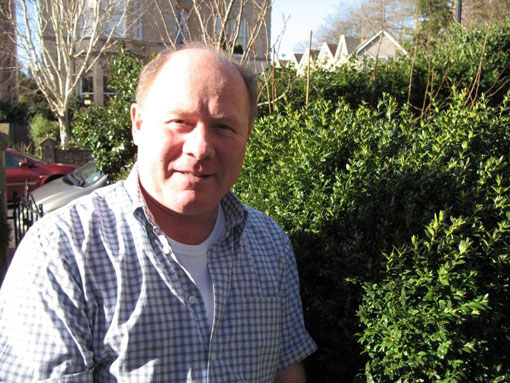 Ahem, cough splutter, yes indeed…
Ahem, cough splutter, yes indeed…
(Gee thanks Dale). Don’t get me wrong: we do need fresh eyes - to keep us pointing in the right direction, to make sure we’re making the programmes as strong as they can be. And it is easy to get so close to a programme that you can’t see the wood for the trees - so regular and constructive editorial feedback and guidance from well-informed senior execs is crucial…
But the reality is that it can get difficult. What if BBC wants a slightly different editorial angle from our other international co-production partners (who may have contributed just as much funding)? Who should we obey? What if someone new steps in to run the channel and they’re not as keen on the series as the previous controller? It has been known for new controllers to ‘kill the babies’ of previous incumbents – like male lions taking over a pride – in order to give their own offspring a better chance.
The truth is that the final approach to landing the finished series can be fraught with delays, disagreements and tension.
Luckily this won’t happen on Human Planet. We have total faith in all our esteemed editorial leaders from all our co-production partners. Don’t we, Dale?
Totally!! Got to go now - I’ve got a literal and metaphorical snowball to push!
Next week we have to present the series - a 20-minute Brian-and-Dale show - to the new Chief Creative Director of BBC Vision, then to BBC Worldwide’s Showcase - a three day jamboree of all the BBC’s potential international co-production partners - to try and rustle up as much interest as we can in the series.
These landmark series can be huge international best-sellers - Planet Earth is still selling like hotcakes as DVDs around the world - so the pressure’s on! It’s a weird time on one of these big series: on the surface we’re trying to exude calm certainty that it’s all going to be wonderful - the best series since sliced bread! and meanwhile we’re frantically pedalling like mad below the water-line to make sure it all comes together on time and on budget…
Ground Control (to PD Tom!)
by Joanna Manley, Production Coordinator, Jungles/Oceans team
Being the Production Coordinator on the Jungles and Oceans team means I’m responsible for sending Tom, Charlotte, Willow and Rachael to Jungles and Oceans all over the world. I seem to be in a constant state of organised chaos and even though I get left behind with the damp life jackets and lingering smell of the Jungle whilst the team flies off to the next amazing destination, I love my job and my team.
I have several time zones set on my phone which I continuously update as teams leave, come back, move on and go out again. It’s sometimes difficult to keep track of where everyone is and invariably they all phone at the same time (usually just as I’m trying to get some lunch!) needing a new camera, flights changed or just someone back in reality to talk to when they’re in the middle of a wet jungle with broken kit and infected feet!
On Human Planet we’re often dependent on people and animals being the same place at the same time when the conditions are right. This is how not to do it….
We had;
Jon in Indonesia trying to film a Whale Hunt close to two earthquakes
Charlotte trying to film a shark whilst there was a tsunami warning for the area
Willow in Bristol trying to track Hurricanes to film in the Caribbean and there weren’t any
Tom and Rachael leaving for the Philippines to live on a boat for 7 days in the midst of the worst typhoon season the Philippines have seen in years.
How typical!
With so many shoots going off and coming back and with heaps of kit needed, our office has got a reputation for a being a bit of a muddle. Danny who delivers post to our office says he has nightmares about it and grumbles it’s like an assault course trying to get from one side of the room to the other. To be honest he’s right, especially as there is a camouflage theme to a lot of the objects such as hammocks, tarps, tents and thermarests. We’ve got wetsuits and life jackets hanging off the back of the door, waterproof bags and jungle ponchos in a heap behind my desk with a solar shower perched on top and on Tom’s desk at the moment is a pile of coconut shells used to call sharks in Papua New Guinea.
My two sets of desk drawers are filled with all sorts of things not usually found in an office drawer…
Muddy batteries from the jungle
Leaking bottles of anti mosquito repellent
Boxes of antibacterial hand wash
A box of latex gloves for covering radio mics
Several dead Central African Republic bees
A tangle of 4 way plug adaptors and extension leads
I’ve got a heap of tapes, gaffer tape and loose cable ties all over my desk and a pair of size 12 flippers along with three Mauritanian jilbabs the team wore whilst filming in Mauritania to the side of my drawers.
Even though I don’t get to see the places we’re filming in person I get a good idea of what’s it like there even before I see the footage. From the smells emerging from their kit bags when they get back, to the sound of pouring rain and bugs I hear in the background when I’m talking to them on the Satellite phone.
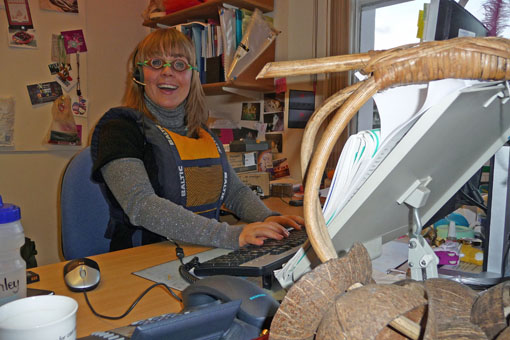
You need a sense of humour in this job! Here I'm wearing wooden goggles from Bajau divers and a lifejacket, next to some shark-calling coconuts
Our next shoot is going off to Brazil on 8th January so we’re battling through our Christmas party hangovers to get everything packed up and ready so we can take a much needed break before another crazy year on Human Planet starts!
Toilets, Tyres and No Tiaras
A Life in the Day of a Production Coordinator
by Isabelle Corr, Production Coordinator, Deserts and Grasslands
I’m sure a lot of you are now getting bored with reading about the fabulous places that all the crew get to visit and would love to know how the rest of the crew left behind in the office pass their days? .. It might not be very exciting but it might make you feel better!
Being the Production Coordinator (PC) for the Human Planet Deserts and Grasslands team means I’ve certainly got my work cut out! So what exactly do I do all day? …. Well, apart from contracting the freelance cameramen, sound recordists, rope access experts, general foreign fixers etc, there’s the health and safety on location to organise, the varied travel arrangements for both crew and kit, insurances for crew and kit, complicated insurance claims, scheduling and budgeting (that’s telling my team what they can and can’t afford to do).
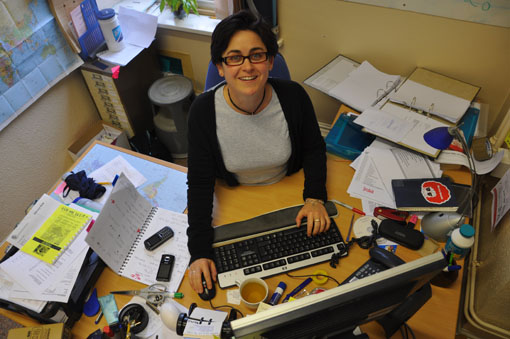
I have also had on occasion to:-
Organise special insurance for horses in Namibia in case they get eaten by hyenas during the night! (apparently a common occurrence)
Approve expenses for a 4×4 tyre that was eaten by a Lion while the researcher was sitting in the vehicle
Organise the last minute shipment of a replacement Varicam camera to the Masai Mara in Kenya. We were told of the broken camera by the crew mid morning and managed to get the replacement on that evening’s flight to Nairobi!
So who can I thank for making that work for us?
Well, let’s start with Sam at Visual Impact or Dave at Films@59 who get me replacement kit in record time. Then, once I have my hands on the camera, I send the serial numbers to BBC shipping. Julie in the Bristol post room organises a courier to pick up the camera and take it straight to BBC shipping in Hayes. Once there, Geoff arranges the essential kit list for UK and Kenyan customs. The camera is then put on the next flight from Heathrow to Nairobi. Luckily for us, this time there was an internal flight to one of the landing strips in the Mara the following morning. Our Kenyan Fixer was able to pick up the camera, get it though Kenyan customs super quick and the crew got their replacement camera just in time to catch an exciting lion hunt!
Some of the challenges of the job are less predictable. Today I have been in discussion with the accommodation provider in North Africa, who tells me that he has spent some of the deposit money I sent him at great expense through Western Union on new “western-style toilets” for the crew so they won’t have to use the existing “hole in the ground”. I told him that the crew were well used to slumming it on location and certainly did not need the excessive comfort of western-style “sitting down” toilets. But it was too late, they have already been plumbed in!
So the sad fact is, the PCs on Human Planet are always too busy preparing for the next shoot and sorting out things going wrong on location to be able to go on a shoot themselves. Although they do keep promising that I will leave the Broom Cupboard one day! So maybe my next blog will be far more interesting than these moanings from the office.. I bet you can’t wait!
The Ape that Got Lucky
by Dale Templar, Series Producer
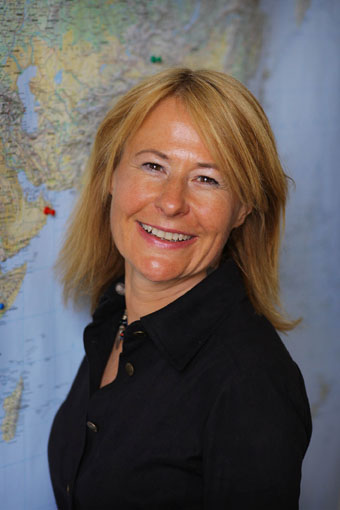
I have just submitted my copy for the “Human Planet” series book which will be published in 2011 to accompany the series. I was tasked with writing the opening chapter, which tracks the journey of Homo Sapiens across all the eight landscapes that we go to in the series. While the series is not looking at the ascent of man, this chapter gave me the chance to go back in time and really look at all the key factors that led to our unstoppable march across the whole planet.
The series looks at man’s relationship with the natural world and it was not until I got stuck into the research for this chapter that it really dawned on me just how big a part climate change has played in our phenomenal success as a species.
Just this morning on the news there was a report of an incredible archaeological find, another missing link in the chain that follows the evolutionary journey from Ape to Homo Sapiens. The main find is of a female, nicknamed “Ardi”. Just like the famous “Lucy”, this new skeleton was also found in Ethiopia, this time not in the southern Omo valley but in the far northern Afar region. This new animal is called Ardipithecus ramidus and is thought to be some 4.4 million years old and possibly a direct common ancestor of humans.
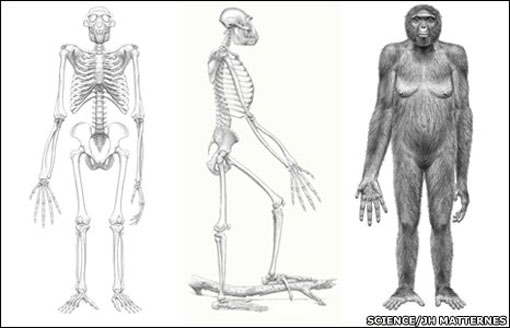
This brings me back to climate change. The American scientists who have been working at this site believe that when “Ardi” was romping around Afar she was living in a woodland area. Just like chimps today, she would have nested in the trees but she was far more bipedal than even the bonobo. Today the Afar is well known for being one of the hottest places on earth. A dry, largely barren, hostile desert, where only the hardiest of humans eke out an existence.
As the climate changed and rainforest contracted, the walking apes moved further and further into the expanding grasslands. With that, the skeletons of the early hominids evolved to cope with a land-based life. That set of circumstances also allowed our brains to develop and increase in size.
Finally modern humans evolved, some 200 thousand years ago. Here was an ape with such a big brain that it could use its intelligence to adapt and survive in every environment on earth without having to evolve into a new species (well, not so far anyway!). Antarctica is the only place that humans have not yet claimed as an official human habitat.
Every month the teams come back with incredible stories of human ingenuity, adaptation and skill from all over the Human Planet. I know we were the Ape that just got lucky, but what an incredible ape we are!
For more info on “Ardi” go to the BBC News web site http://news.bbc.co.uk/1/hi/sci/tech/8285180.stm
Human Planet ruins wedding!
by Patrick Murray, Technical Assistant, Cardiff
When I started on Human Planet as the Technical assistant I didn’t know what I was getting myself into. Turns out it was Rivers, Urban, Arctic and Mountains. In the last seven months I have been involved in sequences ranging from Mud Mosques to Bats and the ever elusive Narwhal. It has been a fantastic experience being involved in the roller coaster that is HUMAN PLANET!
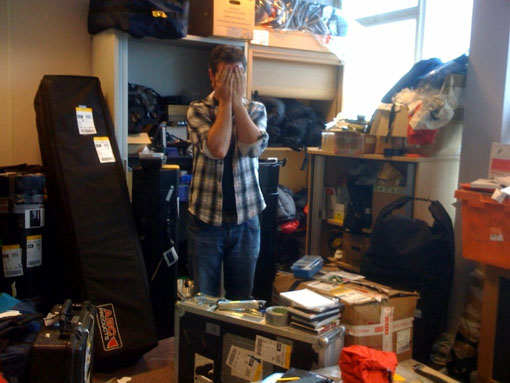
How much kit?!
But like anything this good, it has its price….WORK! And lots of it. From putting tissues into cleaning kits to debating physics with engineers, my role really does encompass everything and anything. My day consists of making sure the Human Planet kit is where it is meant to be, doing what it is meant to be doing.
The aspects of my job I most enjoy are coming up with ways to film difficult and often dangerous situations. We like to think big at Human Planet but we also like to think cheap! This can be a challenge when asked to come up with a Steadicam that attaches to the front of kayaks and then HD Pole cams that mysteriously turn into A1s (small cameras) on boom poles. All in all we manage to get the job done and to an incredible standard, thanks to the amazing crews we put together.
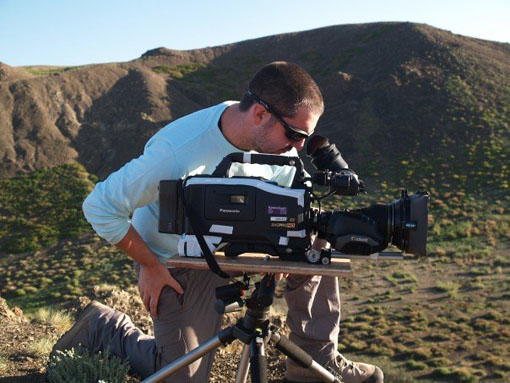
Recently I was given the opportunity to go on a shoot to Austin, Texas filming 1.5 million Mexican Free-Tail Bats that live under the Congress Bridge. I guess I was in the right place at the right time because I got to go by myself to direct part of a sequence. My mission was BAT FEST! A once a year extravaganza that encompasses two stages, several bands and lots of Austinites celebrating the day the bats move in and turn the agriculture around Austin into a moth-free organic wonderland.
After frantically getting permits and a local crew together, I flew out on a Friday evening, thanks to the help of Andrea Jones and Kate Borde. Once in Austin I had a morning to recce the location and meet the local organiser. Then it was straight down to a pontoon raft we had arranged, through city officials, to stand on to film the emergence of the bats. We had just set up the jib and practised some moves when to my disbelief, and then horror, I saw a full wedding party standing behind me wondering what we were doing ruining their special day! After a brief discussion with the bride, her party very kindly moved a mile downriver. I felt a bit guilty but very pleased to get the shot!
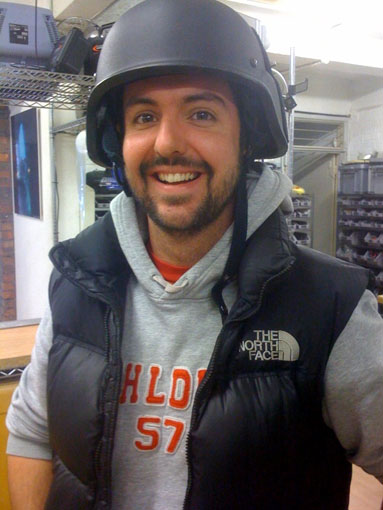
Ready for anything the bats can send
With my soul scarred, we got some great shots of the bats heading out to feed and then headed up to the bridge to take in the Texas air and to get some bat fanatics -. while avoiding annoyed looking men in tuxedos! By midnight I was spent and we called it a night, no beer for me, straight back to the hotel and to bed. Sunday I was up packed and off to the airport to fly back to London. 36 hours in Austin Texas, that’s what I call a weekend!
The Story of an I Visa
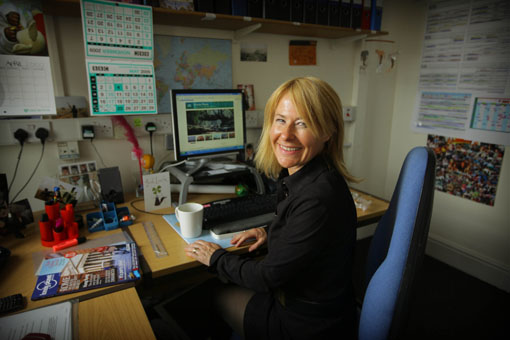
Preparing all the online forms for my I-visa
by Dale Templar, Series Producer, Human Planet
One of the things that I love about being in the USA is the first morning when I always head out for a full on American breakfast. I adore buttermilk pancakes. There is a game I play which is can you order breakfast without the waitress giving you options. Nothing is simple. Eggs are cooked and served about 10 ways, pancakes have 5 different fillings, there are at least 3 different sizes of juice, various cuts of bacon… you get the picture. It seems no matter how prepared you are there is always some thing you forget.
This week I went for breakfast at the American embassy in London. Well actually I went there to get an I-visa, the special 5 year visa you need to work as a media type in America, but I did indeed have breakfast and was nearly there for lunch and dinner too.
It used to be that you could get these visas quite easily but since 9/11 all that’s changed…..
My alarm goes off at 6.30am and by 7.30am I am dropping off all my restricted bags and mobiles at BBC Broadcasting House (BH) in London. I’d had to stay overnight so it was impossible to get my gear into the one small bag you are allowed to take into the embassy. All electronic items are banned, so I leave all communication with the office and the outside world behind. The visa rules state that everyone MUST be at the embassy at 8am to start being processed.
So there I am now standing in a very long queue outside the building, beside tents filled with hunger strikers. It starts to rain and of course I’ve left my umbrella at BH. So I stand in the queue slowly turning into a drowned rat! Finally, after 2 rain checks (get it!), I’m undercover. I’ve got as far as the scanning machine. My bag goes through once and then gets put through again. They discover I have my electronic car keys in the bag which apparently have the potential to be weapons of mass destruction. They also discover my tiny I-phone headphones - good for strangling ants maybe? So I am sent back into the rain to store them at it a local chemist.
Sometime later I am finally in the building. More queues, more waiting and I finally get to a counter. I hand over my standard BBC passport photos, nice, clear, professionally taken pictures, no strange sunglasses or weird head adornments. “Sorry, the background of your photo is grey, we need it to be white!” So I am sent away and return to the lady with my rather dreadful photo booth picture. She accepts them and now informs me that I have to wait again to be called up for the final interview.
Time for my American breakfast. A sad cup of tea and a pre-wrapped muffin. More waiting and I’m finally called up for the interview. I’m having a really nice conversation about “Human Planet” and my forthcoming polar bear shoot with the nice man, recently arrived from Arizona. He scans something and then I get “We are sorry, but some of the applications today are getting stuck somewhere between London and DC, yours seems to be one of them - it’s nothing personal but please can you go back and wait again maam!” At this point I do wonder how we ever got men on the moon.
I sit and wait and a poor Sri Lankan house keeper asks me for help. Her form will not scan for some reason. She’s been instructed to start again on the computers they have in the waiting area. The only trouble is Pauline has never used a computer in her life. She’s such a precious person. Both her parents died when she was three and she grew up in a convent. Her employer had filled out the form and sent her to London for the first time by herself.
This took a while - the computer kept skipping back to the front page, but the conversation somehow transported me into another world. The form successfully prints and I snap back into the challenge of getting my own I-visa. I finally take things into my own hands and dare to go to one of the interview booths, without my number being called and plead for mercy. The man kindly finishes off the process and informs me that unless DC have any problems, which he doubts, my passport will be returned to me with an I-visa in about three days. THE END (I HOPE). GOD BLESS AMERICA!
The next day I am informed that we may move the story to Canada rather than Alaska!
Tales of the unexpected
by Julia Wellard, Production Team Assistant, Bristol
The photo below was taken after a jungle shoot in the Central African Republic. The tents came back damp and smelly and needed a good airing, so Rachael Kinley (the researcher) and I had the bright idea of draping them over every surface we could find, including the office of our Series Producer, who was away at the time. We were planning to dry them out so they’d be in better shape to send off to be cleaned. What we weren’t planning on was a large eight-legged hitchhiker crawling out of one of the tents and multi-legging it down the stairs!
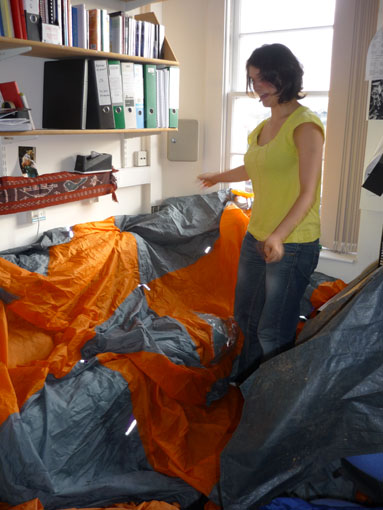
Since then, we’ve had other uninvited guests from overseas dropping into the office - the best count came after another jungle shoot - this time to western Papua to shoot treehouses. Final count was five cockroaches, two earwigs and another large spider! A few more to add to the many legends about animals coming back from NHU shoots and flying, slithering or creeping away into the bushes round the BBC Bristol car park.
As Production Team Assistant, this is the nearest I get to experiencing the wildlife the teams meet and film on location. But there are other ways I share in the challenges and excitement of location filming. Like Jasper in an earlier blog, I’ve had a few calls in the middle of the night, usually reassuring me that crews have arrived at the right place at the right time, but occasionally explaining they’ve had to beat a rapid retreat because of suspected guerrillas in the area - or mentioning that a bomb has just gone off near their hotel.
It can be fascinating building a complicated schedule involving flights, boat rides, horses, camels, helicopters and having to rearrange everything when one of the links in the chain breaks down. But the one I remember best is the day a long and very complex travel chain to Borneo had to be completely rejigged because of snow at Bristol Airport!
Executive Decisions

by Brian Leith, Executive Producer, Human Planet
I realise these blogs are supposed to be action-packed accounts of daring exploits posted by intrepid members of our filmmaking teams scattered to the farthest-flung corners of the world. But this week I thought we’d bring you a surprise.
So, while we have one team (Mark and Renee) filming the capture of giant fish in the turbulent rapids of a river in Laos, another (Tuppence and Jane) filming tribesmen literally stealing a kill from hungry lions in Kenya, and another (Tom and Rachael) filming a house-move (!) atop a 40-metre tree in Papua - and yet another team (Nick and Bethan) filming a traditional Inuit whale hunt in Greenland… I’m bringing this front-line account to you from exotic Whiteladies Road in Bristol.
You see, not all of us in glamorous wildlife TV get to go on those exotic trips. Some of us have to man the telephones and sit in front of computers back at base, trying to keep track of it all. Some of us are ‘production management’ staff, in charge of making plans and making sure those plans actually turn into film shoots; some of us are technical staff, trying to make sure that all those sounds and images gathered from around the world are transferred, logged, and stored in a suitable format so that we can actually make the series at the end of all this action; some of us are picture and sound editors, destined forever to sit in darkened rooms imagining what it must have been like to be on location when that mad thing happened.
And some of us never get to go anywhere at all because we’re… well, because we’re just so darned IMPORTANT. As the Executive Producer of Human Planet I rarely get to travel beyond Redland and Clifton, here in deepest Bristol. This has its up-sides: I get to go home at a reasonable hour most days and I can take my son to school in the mornings; I get to drink lattes in fashionable cafes discussing the latest gossip in Broadcast magazine.
But there are down-sides too: I wave jealously to my colleagues as they head off down the M4 destined for Iguacu Falls or The Skeleton Coast in Namibia with tents and sleeping bags tucked under their arms; I have to sit silently at the lunch tables - no intrepid tales to tell, no scars to show off, no shrunken heads to give as gifts to adorn my colleague’s desks. Yes, it’s a tough life for us execs - we’ve moved on from the heady days of adrenaline and malaria to the gentler slopes of ovaltine and mogadon. We may get - I said may - the bigger bucks, but we’re hardly the tanned and chilled well-travelled explorers we once were - or once hoped to become.
So the picture of me above shows me standing by my hedge in Redland - about to head south down Whiteladies Road, a gruelling fifteen-minute trek to the BBC offices here in Bristol. The editor of this blog has threatened to add another photo of me in more adventurous days - crossing a river in the Congo on the trail of jungle elephants… But my shtick these days is purely vicarious adventure.
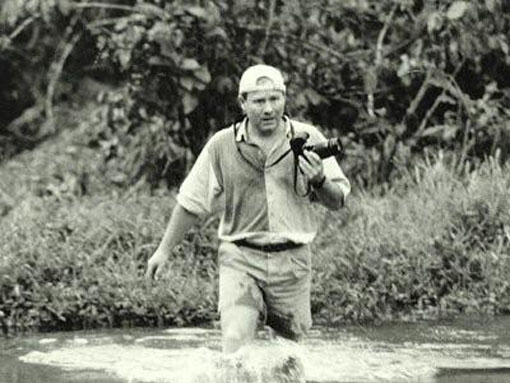
Brian being adventurous in the Congo (couldn't resist. Ed)
Teams everywhere on location
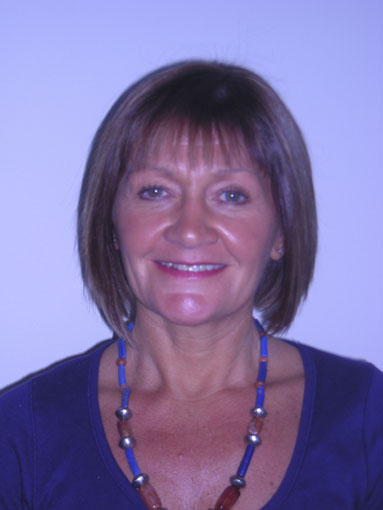
by Ellen Davies, Production Manager, Arctic/Mountains team
My location is Cardiff and my office is on the top floor of BBC Wales which overlooks Llandaff Cathedral. Here I enjoy the comforts of my work place where so many of our day to day facilities are taken for granted. I’m comfortable. One of my teams are currently in Greenland, the other is about to head off to Mongolia (for more see below my blog). Geoff from BBC Shipping has a very soft, gentle voice and says: “Calm. Calm.” It works. I’m now calmer and I’m in the process of freighting my second shipment of kit to Qaanaaq, the most northern town in Greenland. Geoff simplifies the process.
We hire, purchase, gather and pack our kit with our wonderful Patrick Murray, Cardiff’s Technical Assistant on Human Planet (what would we do without Patrick?). For Greenland this includes a crane with hothead, a kayak with specially designed rig, camping gear, cameras, sound, first aid kit and enough warm clothes and sleeping bags to make sure the crew don’t freeze.
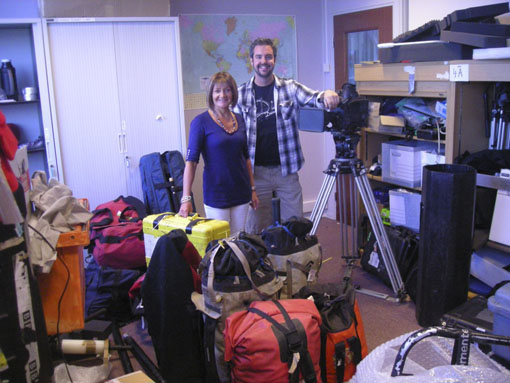
Ellen and Patrick and kit bound for the Arctic
Getting the kit to our destination is quite straightforward – from Heathrow to Copenhagen to Kangerlussuaq to Illulissat to Pituffik to Qaanaaq and onto Siorapualuk. Easy. (I can even pronounce these names now!) The kit gets there. It takes two days. The last ride is by helicopter where you would fly along the rocky coast line over icebergs and fiords. It must be pretty spectacular. The third shipment of kit travels with the crew and I’ve only booked a seven seater people carrier to transport three people and kit! Where and how do we accumulate so much? We’ve now exceeded over 1000 kgs of kit. The Arctic crew are out of the door and I’m already on the next shoot for the Mountains programme….
My Greenland team are filming two stories for the Arctic episode and one involves filming on sea ice that is starting the break up. Because of the dangers of trying to film the narwhals (sea unicorns) from the kayak and on the ice edge, we have a strict protocol – Bethan Evans (researcher) or Nicolas Brown (producer/director) must call me at 16.00 hrs daily. If I don’t hear from them after four hours, I then make contact to their local police. I look forward to my cup of tea after I’ve received their phone call. I can relax for another day. My schedule and two mobile phones rest on my bed side table and I warn my husband that I might just get a call. I put my phones on silent but vibrate.
Sometimes I wish I was the one going on these amazing filming trips but generally I enjoy being on the end of a satellite phone, the welcome voice of home for the guys on location. By working on this series I’ve really come to understand the incredible way people live in these remote environments. More than ever I appreciate the comforts of my home, my family and friends and the BBC office. Roll on 2011, when I will enjoy watching the fantastic footage and amazing stories on my 52” plasma screen in HD!
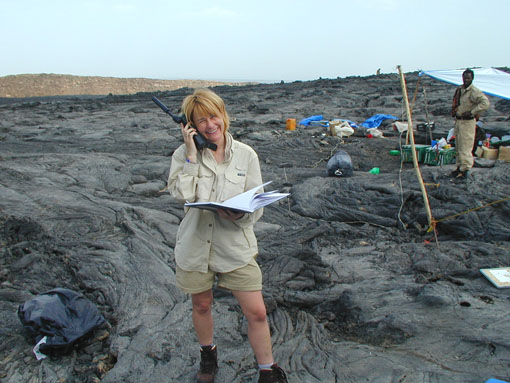
Dale Templar, Series Producer, A Return to the Last Disco in Mongolia
I don’t get out much these days, one of the few down sides of running Human Planet. On Sunday I am due to return to Mongolia to film golden eagle nests. I say “due” because I’ve just had a phone call from Dina, our researcher, to say the eagle chicks we wanted to film have been taken! Poor Dina! As I write, there are men on horses galloping around the western Mongolia mountains looking for eagle nests. They are seven hours ahead and if there is no joy soon we may have to cancel the shoot.
Anyway, back to my original story. If we do fly on Sunday this will be a strange return. The last time I filmed in Mongolia was in 1993, soon after Russia pulled out of the country. It ‘s still one of the most God forsaken places I have ever visited. The economic rug had been pulled from underneath the country - they’d been left abandoned. Ulaanbaator was a sad, bleak capital city filled with stark Stalinist buildings, empty shops, abandoned hospitals and truly disgusting food. No longer needed as a buffer zone with China, they’d been left to start again.
I had gone to make a film with Fergal Keane about the sewer children and spent a fair bit of time underneath the rat ridden streets of the capital. We had knives pulled on us, stones thrown at us, sewer covers slammed on us……. umm Mongolia, can’t wait to return. Thank goodness for the disco at the Ulaanbaatar Hotel !
Seventeen years on, I’m told Mongolia has changed significantly. I actually can’t wait to see it. The boy I filmed was called Batzayan, he will now be a man. Hopefully he will be successfully forging his way, feeding his children and keeping them warm as this now established democracy pushes open the doors of the market economy.
Welcome to Human Planet
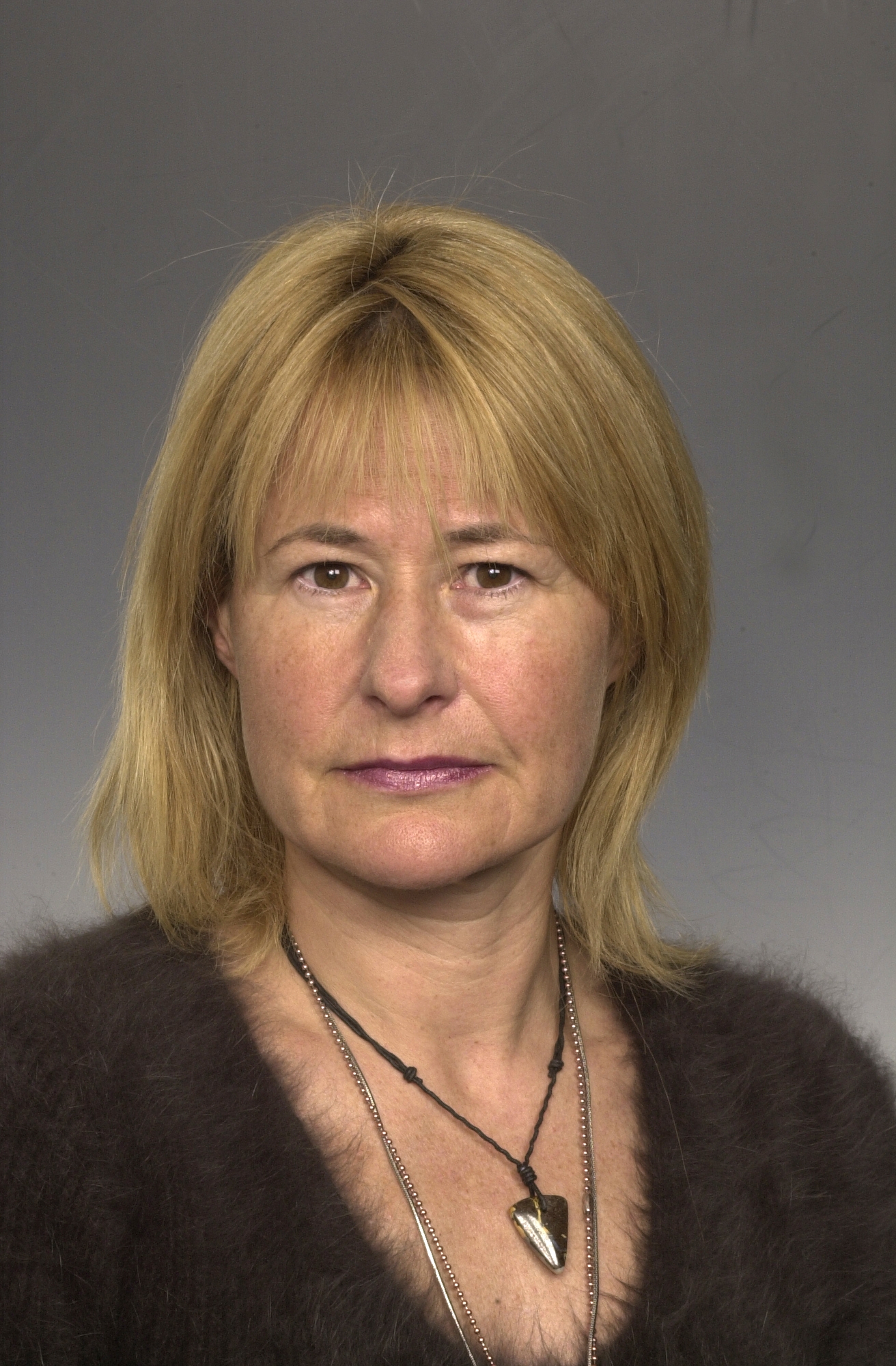
Dale Templar, Series Producer
by Dale Templar, Series Producer
So what is Human Planet? Human Planet is a new 8×50 minute landmark documentary series being made by BBC Television. The series celebrates the human species and looks at our relationship with the natural world by showing the remarkable ways we have adapted to life in every environment on earth. It is due to be transmitted in the UK in the New Year 2011 and will be rolled out across the world soon after.
The production team is split across two sites, one in Bristol and one in Cardiff.
In BBC Bristol we are part of the world renowned Natural History Unit. You may have heard of us, but if not, you’ve probably watched some of our programmes. Many have been presented or narrated by Sir David Attenborough, like Planet Earth and Blue Planet. Most recently we’ve just finished Nature’s Great Events which our own executive producer, Brian Leith, worked on.
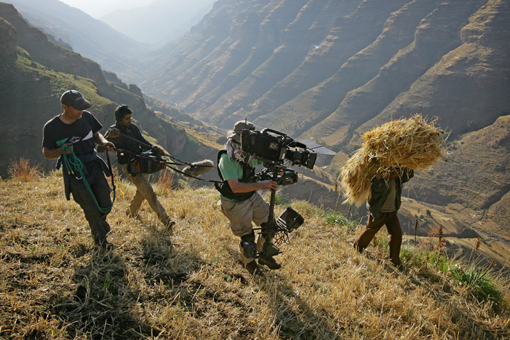
BBC Human Planet : Simien Mountains
BBC Wales, based in Cardiff, are probably best known in the UK right now for producing high end popular dramas like Doctor Who. Torchwood, another sci-fi doc that comes out of Cardiff, is also an HD production and Human Planet will be using the same excellent post-production facilities. The factual department is best known for its ground-breaking anthropology documentary series Tribe.
In total we have a core team of 20 phenomenally talented programme makers, who come with a wide range of skills and experiences. Working with us are some of the best wildlife and documentary camera crews and fixers in the world. For the first time we have a dedicated stills photographer, Timothy Allen, who will be posting his own Human Planet blog every week at http://timothyallen.blogs.bbcearth.com/
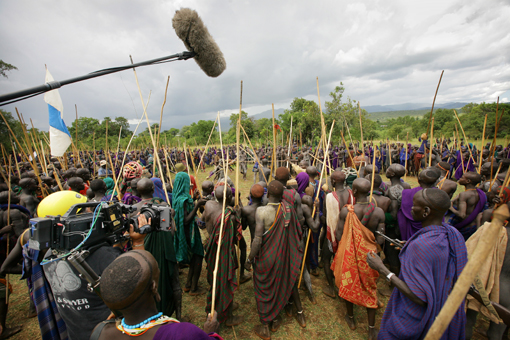
BBC Human Planet : Suri stick fight
The series started in full production in the summer of 2008 and we will be shooting over 70 stories in some of the most remote locations on earth in around 40 different countries.
Each episode will focus on one single environment: desert, jungles, arctic, grasslands, rivers, mountains, oceans and urban. Many of the stories are extremely dramatic and will show how we have successfully adapted and survived in the most challenging places on the planet.
As from next week each member of the team will be blogging their stories from the Human Planet. I will keep you updated on where everyone is and give you general news about the series.
Currently, we have teams that have just come back from the remote southern region of Mongolia, filming for the desert episode. On location are the Jungles and Mountains team who are in the Central African Republic and Nepal. I’ll let you work out which team is where!
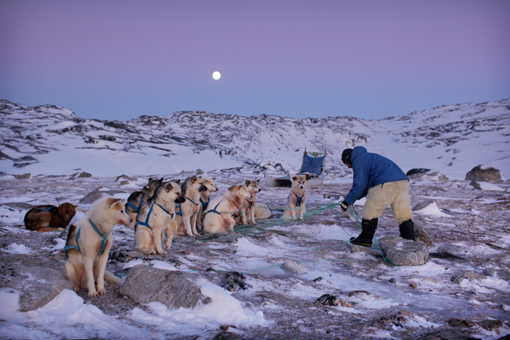
BBC Human Planet : Arctic Dawn
That’s it for now …enjoy the photos and the sneak preview from the series. See the link if you’d like to read what Timothy Allen’s been up to and don’t forget to explore the new BBC Earth site too. Look out for the regular Friday posting from the Human Planet team, with fascinating stories and tales from both our many locations and from the office.
